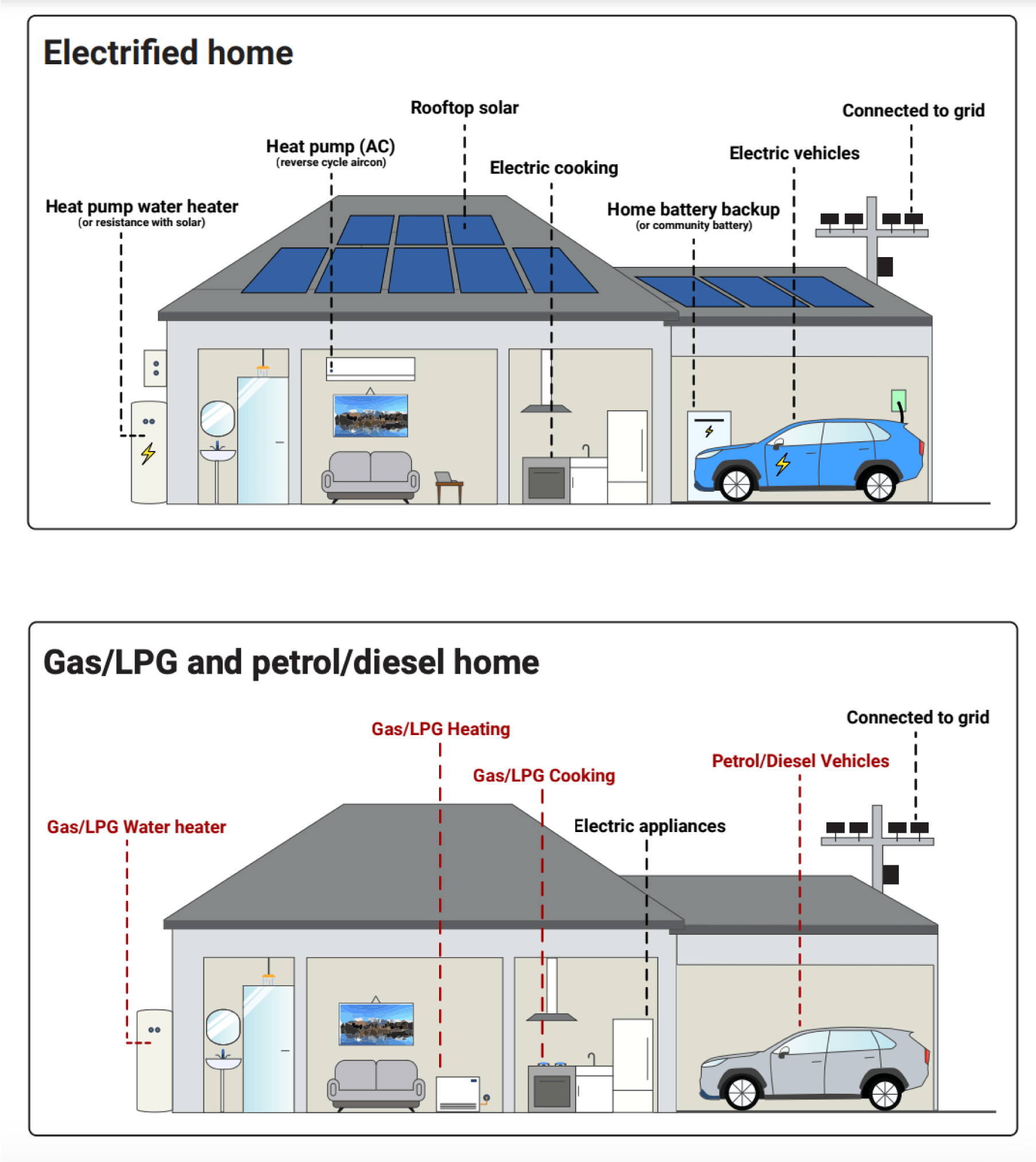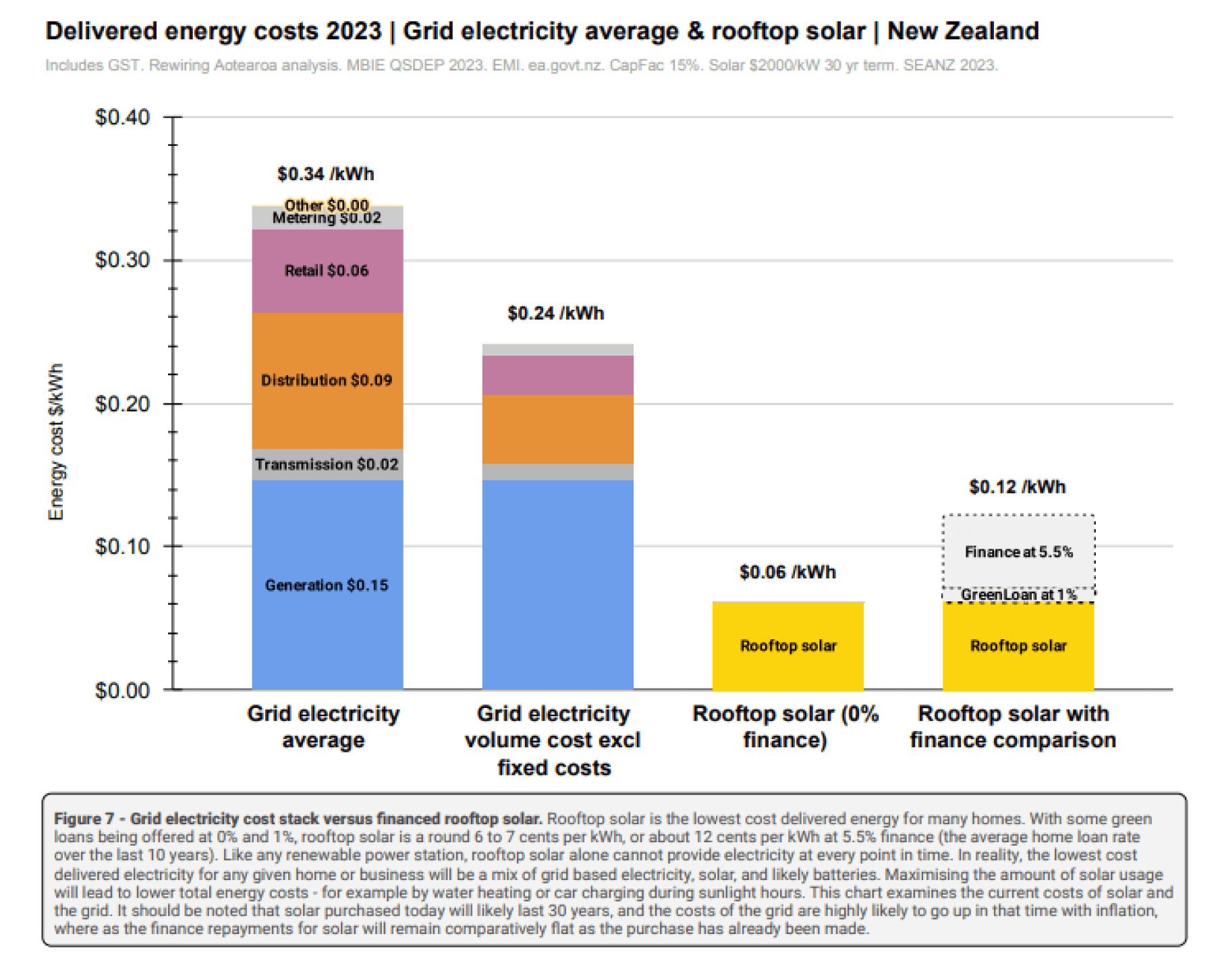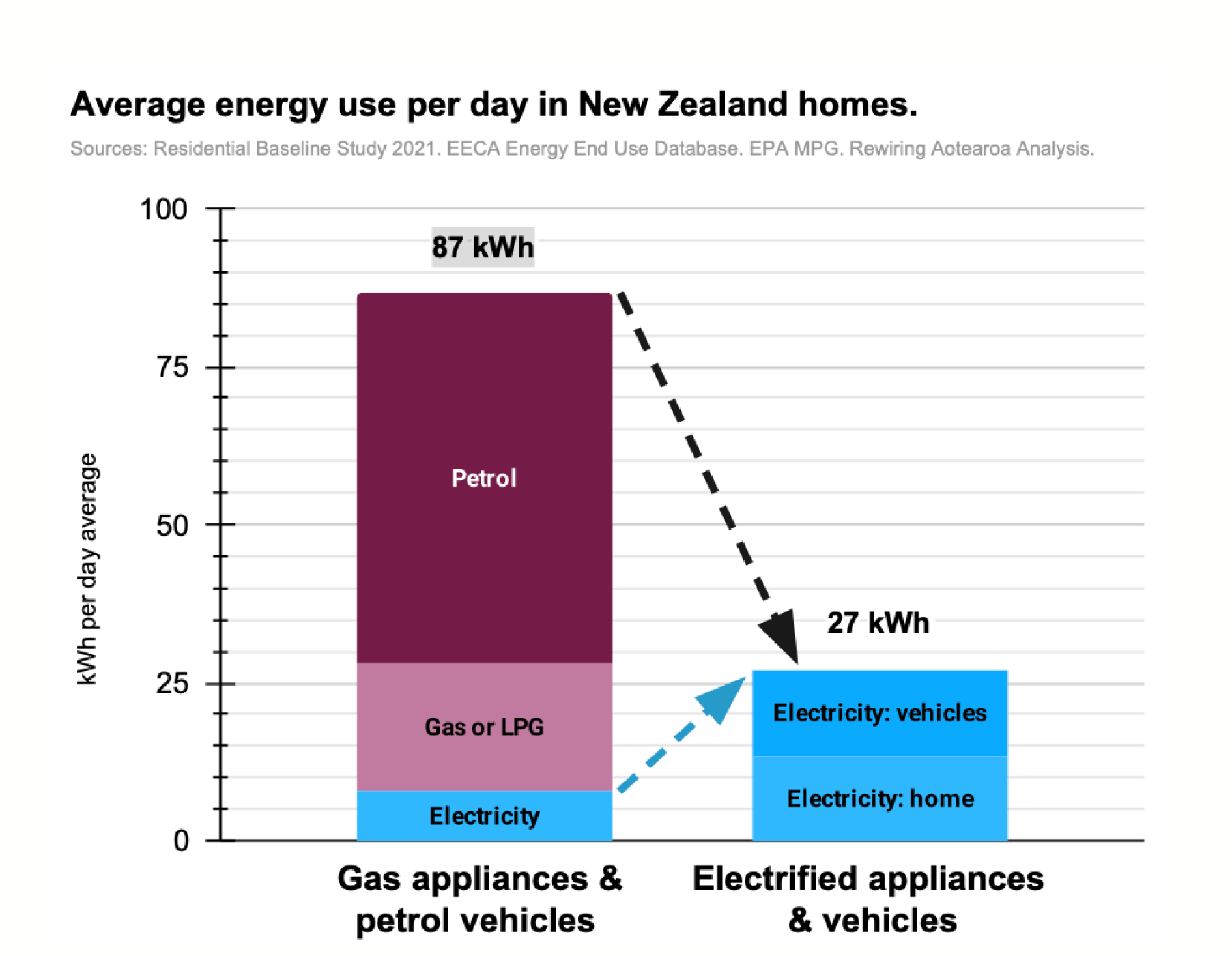New report finds all electric homes are cheaper to run
We’ve had an inkling for a while, but thanks to a new report from the non-profit organisation, Rewiring Aotearoa, it’s official. It is now cheaper for homeowners to shell out and replace every appliance in their home – including the car – with an all electric-powered one, than it is to continue running them on fossil fuels.
Yes, you heard that right.
Their analysis calculated that the savings get even more exciting when you combine electrification with rooftop solar, even when you pay for the lot on finance.
They’re calling it the Electrification Tipping Point and it looks like New Zealand is one of the first places in the world to reach it. The kicker? Electrifying our homes will also reduce our nation’s total emissions. With a whopping 31% of NZ’s domestic emissions coming from household energy use, that’s a big piece of low hanging fruit.
Cheaper bills for Kiwis and lower emissions for the planet? They might call it an Electrification Tipping Point, we’d just call it a win, win.
What is Electrification?
While our national grid supply is around 80% renewable, a big chunk of energy used in NZ homes comes from machines and appliances that burn fossil fuels. Water heating, space heating, driving and cooking are all top culprits. Things like:
- Gas stovetops and ovens
- Diesel or gas hot water heaters
- Petrol and diesel cars
Electrification means swapping these appliances for electric-powered alternatives. Installing an electric or induction stovetop instead of gas or an electric air-to-water heat pump for your hot water.
Straight away, the report found two big benefits to this switch:
Electric appliances are significantly more efficient than their fossil fuel counterparts, which means you’ll use less energy overall, which will save you money.
Using more electricity from NZ’s (mostly) renewable grid rather than burning straight fossil fuels means you’ll reduce emissions. Now, and for the long life of that appliance.
Sounds good, right? But here’s where it gets really interesting… The report found that an electric home with the ability to produce its own power from rooftop solar delivers even more financial savings.
How Solar and Batteries Can Save You Money
As your home becomes more electric, it’s pretty obvious that while your bills with gas companies and petrol stations will go down, your electricity bill is likely to go up.
That’s why you’ll want to find the cheapest source of electricity to maximise your savings.
Rewiring Aotearoa’s report found that incorporating rooftop solar and batteries offers the lowest cost way to power your all electric home. Especially if you purchase the solar using one of the low interest loans on offer from NZ’s major banks right now.
Their analysis found the average cost of grid electricity to be 34 cents per kWh. Compared with rooftop solar purchased on 1% finance loan to be as low as 7 cents per kWh (or 6 cents kWh if you can get it on 0% finance).

That tells us that in terms of delivered energy, the cheapest power available in New Zealand right now is the power you generate and use directly. Straight from solar panels on your roof to appliances (or battery storage to use it at night) below.
With a fully electrified home, there are smart tools available to help you make the most of when the sun is shining and power is free. Setting a delay on your appliances, scheduling your car charging, using a battery to store energy for use at night and even choosing the right energy retailer will help you hit that low cost per kWh rate.
(As part of our installation service, we’ll talk you through this and help you set things up according to your lifestyle).
Because you pay upfront for your solar panels at today’s price, you also get the benefit of effectively ‘locking in’ the price you pay for power for the life of the solar system. That’s usually around 25-30 years. The price of grid supplied electricity, on the other hand, is projected to increase over that time, making the solar-powered savings even more attractive than this modeling suggests.
Solar’s Role in Meeting Future Energy Demands
The report makes it pretty clear that electrification of homes is the future for NZ. It saves people money and reduces our overall emissions. It also comes with benefits to our health like lowering asthma causing pollution in homes from cooking on gas.
By now you’re probably thinking, “if everyone jumps on the electrification bandwagon, aren’t we going to need a lot more extra electricity generation?”.
You’re absolutely right. If we electrify every home in NZ, as a nation, our fossil fuel energy demands will go down but our electricity demands will go up – around double to triple in fact. And that generation has to come from somewhere.

So on top of producing the cheapest power for your home, the Rewiring Aotearoa report identified local rooftop solar and batteries as a key component in securing NZ’s renewable energy system going forward. Not only is it clean, green and produced exactly where it’s needed (reducing losses in transmission and pressure on the poles and lines too). Rooftop solar is already lower cost than grid-based electricity when you look at delivered energy.
To meet the increase in electricity demand, as a country we could invest in large scale, expensive new infrastructure like a new Wind Farms or another Hydro Dam. We could keep relying on emissions heavy oil and gas imported from overseas.
Or, we could create a nationwide network of rooftop solar installations that provides low cost, renewable and resilient power for Kiwi homes, generated exactly where it is needed.
I don’t know about you, but to us that sounds like a win, win, win.
You can read the full report from Rewiring Aotearoa, which contains more examples and modeling, here. We also suggest following their great mahi on Instagram or Facebook.